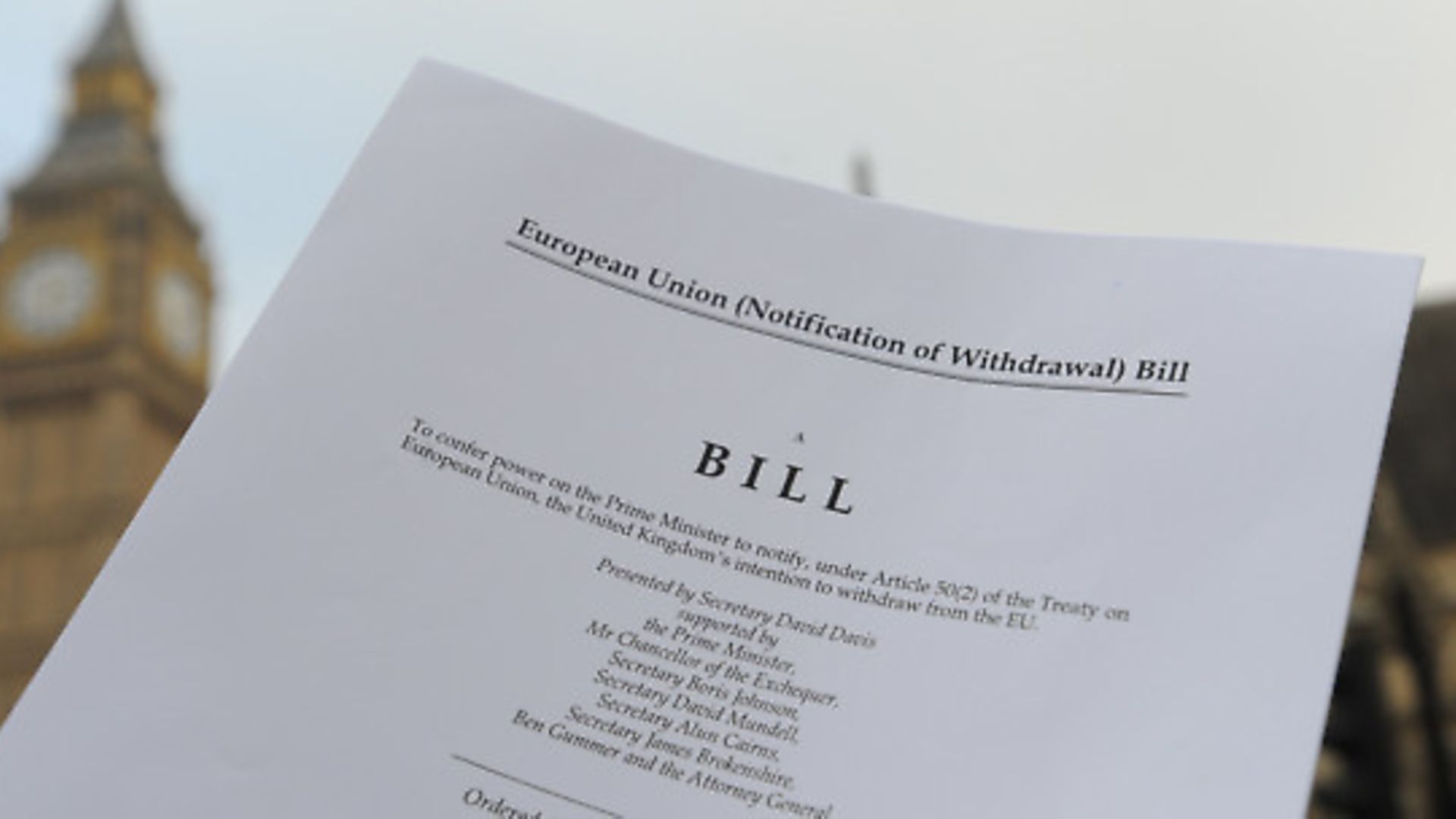
The European Union (Notification of Withdrawal) Bill to pave the way for the formal Brexit process to begin under Article 50 has cleared its first hurdle in the House of Commons.
But the main Commons skirmishes over the legislation will come during its committee stage from Monday to Wednesday next week, when MPs will scrutinise the Bill in detail and put forward amendments for votes.
While Labour leader Jeremy Corbyn ordered his MPs to back the Bill at the second reading, his party will try and add safeguards to the Bill when it is next debated.
Labour amendments which could command some support across the House include moves to ensure MPs have the first vote on any proposed exit deal.
An attempt to guarantee legal rights for EU nationals already living in the UK, moves to protect workers rights and single market access, and calls for further scrutiny have all had some level of cross-party support in recent months.
The Liberal Democrats’ main aim is to ensure a second referendum on the final deal achieved by Theresa May and they will vote against triggering Article 50 if they cannot achieve it.
The Scottish National Party, which is opposed to Brexit, is expected to table dozens of amendments.
Remain-backers and ultra-Eurosceptics on the Tory backbenches could also attempt to change the Bill.
But with the majority of the Labour Party fundamentally supporting the triggering of Article 50 by April in line with the Prime Minister’s timetable, she will be confident of getting the Bill through relatively unscathed.
Third reading, the Bill’s final Commons stage, is also expected on Wednesday, February 8, giving MPs final chance to say whether they approve of the Bill before it passes to the House of Lords, where the stages are repeated.
The Government could find life more tricky in the upper chamber, where the Bill will be introduced on February 20, because it does not have a majority.
Labour in the Lords has already said it will examine but not block the Government’s Brexit plans, although some individual peers are likely to register their opposition.
But the Lib Dems, who are determined to secure a guarantee of a fresh referendum on the final deal, have 102 peers compared to 253 Tories out of a total 805.
The Bill is expected to complete its passage through the Lords by March 7 but if peers have made amendments, it will return to the Commons, where MPs will debate whether to keep the changes or get rid of them.
This procedure, known as ‘ping-pong’, would see the Bill repeatedly move between the Commons and the Lords until an agreement is reached on the final text.
Ping-pong seems the most likely stage for the Bill to be held up as peers could become emboldened with time running out for the Government to hit its timetable.
But members in both Houses will be acutely aware that appearing to frustrate the progress of the Bill would risk accusations that they are going against the will of the people expressed in last year’s referendum.
And peers have also been warned to ‘tread carefully’ and not seek to delay the Bill, given they are unelected parliamentarians.
Warning: Illegal string offset 'link_id' in /mnt/storage/stage/www/wp-includes/bookmark.php on line 357
Notice: Trying to get property 'link_id' of non-object in /mnt/storage/stage/www/wp-includes/bookmark.php on line 37






